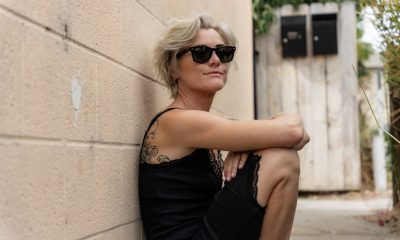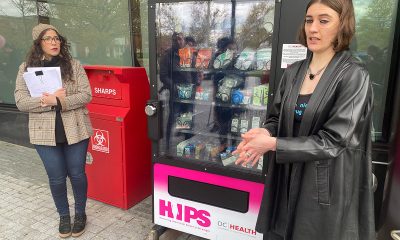Arts & Entertainment
No LGBTQ role or film winners at 75th Golden Globes, despite multiple nominations
But thanks to Oprah, #metoo movement soars
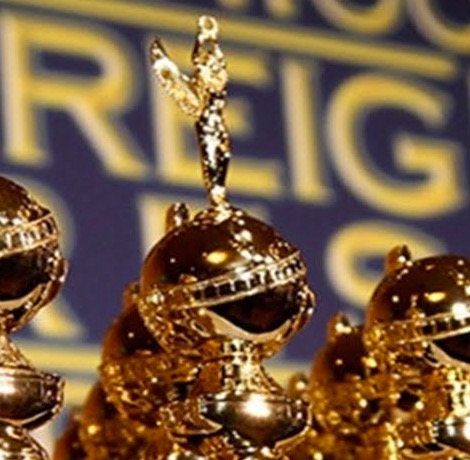
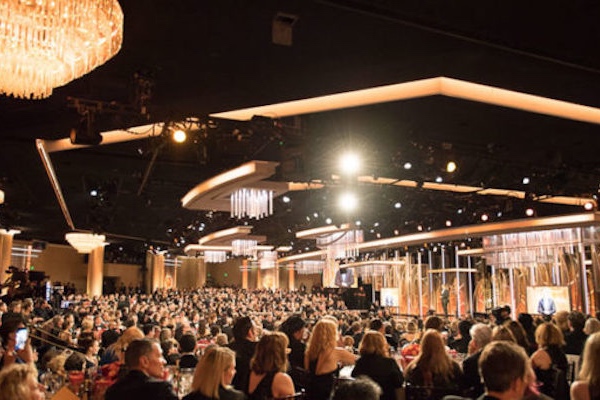
Start of the 75th Golden Globes live from the Beverly Hilton Jan. 7, 2018.
The 75th anniversary Golden Globes featured Hollywood actors donning all-black gowns and suits, and wearing #TimesUp pins in support in of those who have spoken out about sexual harassment and to protest gender inequality. It was a hugely important night celebrating women and women’s stories.
But many in the LGBTQ community were left puzzled by the lack of representation among the acting, directing and screenwriting category nominees and winners, even though #TimesUp resonates against homophobia too.
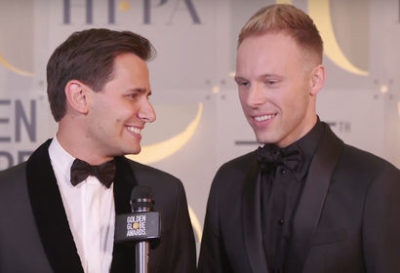
Gay men Benji Pasek, Justin Paul won for Best Original Song, with “This Is Me” in “The Greatest Showman. (Photo courtesy Golden Globe Winners Stage)
While “Handmaid’s Tale” and “Lady Bird” (both LGBTQ-themed projects) picked up awards, and there was a big win for Benji Pasek for Best Original Song, with “This Is Me” in “The Greatest Showman,” the night was entirely bereft of awards for LGBT roles, themed films or out actors.
D.C.-based film critic and the founder of Cinema Siren, Leslie Combemale says the omission of out lesbian, gay and trans actors among the nominations is not unlike the traditional silencing of women in the industry that led to the current crisis.
“It’s just a group of underrepresented people in the entertainment world that Hollywood doesn’t believe is capable of performing on that level… which is crazy,” Combemale told the Los Angeles Blade.
“Look at the film, ‘Fantastic Woman,’” she says. “Here’s an example of a great transgender actor [Daniela Vega] with an amazing performance who wasn’t even nominated.”
Combemale went on to step to tread delicate waters, pointing out that many in Hollywood have remained closeted and that they are at fault here.
“Until more gay roles become available to openly gay actors, then that’s going to continue to be part of the problem — people not feeling confident about being their true selves in that environment,” she says.
John Paul King, Los Angeles Blade film critic says, “There were a lot of excellent and diverse films nominated this year, and of course all the winners deserved to take home their prizes. And I think the fact that both Best Picture winners were very muchdriven by a female perspective – even though “Three Billboards” was written and directed by a man – was very telling.”
Beyond LGBT issues, it was not an entirely challenged event on the diversity front, however.
In a historic moment, actor Sterling K. Brown, star of the TV series “This is Us,” won for Best Lead Actor in a TV Drama. He was the first Black actor to win in this category. Last year, he won Best Supporting Actor in a TV Drama for his role in “The People v. O. J. Simpson: American Crime Story.”
But it was Oprah Winfrey’s speech that was the highlight of the evening. The media mogul, actress, and producer, was honored with the Cecil B. DeMille award. She is the first black woman to win.
Doing what she does best — inspiring and empowering — Winfrey talked about her own inspiration remembering when Sydney Poitier become the first Black man to win an Oscar in 1964 for “Lilies of the Field.” And what it meant to her as a little girl.
“Up on the stage came the most elegant man I had ever seen,” she recalled. “I had never seen a black man recognized like that before. What a moment like that means to a little girl, a kid watching from the cheap seats, as my mom came through the door, bone-tired from cleaning other people’s houses,” Oprah said in her acceptance speech.
“There are some little girls watching as I become the first black woman to be given this award,” she went on.
Winfrey recalled the story of Recy Taylor, a black woman whose 1944 rape by six white men did not lead to any convictions. Taylor passed away last month at the age of 97.
“She lived — as we all have lived — in a culture broken by brutally powerful men,” Winfrey said. “For too long, women have not been heard or believed if they dared to speak their truth to the power of those men, but their time is up.”
But Oprah brought Hollywood to its feet when she talked about the future of women in a world without discrimination and harassment. She gave a full-throated clarion call for change that could resonate beyond Hollywood.
“I want all of the girls watching here now to know, that a new day is on the horizon. And when that new day finally dawns, it will be because of a lot of magnificent women, many of whom are right here in this room tonight, and some pretty phenomenal men, fighting hard to make sure that they become the leaders who take us to the time when nobody ever has to say, ‘me too’ again.”
There were several straight actors nominated for playing gay roles, but none took home the gold.
Armie Hammer, Actor in a Supporting Role, for “Call Me by Your Name,” [Sam Rockwell won for “Three Billboards Outside Ebbing, Missouri”] and Timothée Chalamet, Actor in a Motion Picture, Drama, also for “Call Me by Your Name” [Gary Oldman, won for “Darkest Hour”]. Emma Stone, Actress in a Motion Picture, Comedy, for her role as Billie Jean King in “Battle of the Sexes,” [Saoirse Ronan, won for “Lady Bird”]. In television, Eric McCormack nabbed a nomination for his role as Will in NBC’s revived “Will & Grace,” [Aziz Ansari “Master of None”].
“When someone who’s gay comes out as gay, everyone’s like ‘oh my God, I can’t believe it.’ But, when a straight actor plays gay, everyone says, ‘oh, he or she is so brave.’ That’s ridiculous. It does piss me off. Just like when a Jewish character is played by a Greek,” standup comedian, actress, Emmy award winning television writer, and producer Judy Gold told the Los Angeles Blade.
Combemale says the Globes missed the boat on a quiet a few films with LGBTQ actors and creative.
She says “Mudbound,” Dee Reese, the director and half of the screenwriting team, who is Black and a lesbian. “She’s a star. Eventually it will happen. It’s a great movie and that’s a big miss,” Combemale says.
Also, she cites writer-Director Angela Robinson for “Professor Marston and the Wonder Women” who seemed to disappear from the radar.
“And ‘BPM (beats per minute)’ a French film was a huge miss. Internationally, it might be that gay and lesbian actors are playing gay characters and not in the U.S.,” she says.
Combemale says she believes there were several options for lesbian actresses who could have played the Billie Jean Smith role in “Battle of the Sexes,” outside of Emma Smith. “I don’t believe the movie wouldn’t have gotten films without her.”
Although “Call Me by Your Name” was nominated for Best Motion Picture Drama, it has a gay director, Luca Guadagnino, and screenwriter James Ivory, neither of whom were nominated. Many were rooting for the film as it has several queer producers, including Guadagnino and Ivory, who would take home gold if the film won. “Three Billboards Outside Ebbing, Missouri” won the award.
“It’s important for the LGBTQ community to continue to speak up, especially in the current cultural and political climate, about being included. That doesn’t mean we’re less than one-hundred percent supportive of the women’s movement, but we must make sure our voices are heard, too,” says Los Angeles Blade’s King. “Movies are a big part of how people’s attitudes change, and when Hollywood send the message that we matter, too, it’s a huge step forward in our struggle to be recognized as equal’”
We can only hope that the new culture Oprah says has been ushered in will be one in which gay and lesbian actors can be considered for gay or lesbian roles and where there is no penalty for being out.
Times up for all that, too.
For the complete list of winners go here.
Movies
After 25 years, a forgotten queer classic reemerges in 4K glory
Screwball rom-com ‘I Think I Do’ finds new appreciation

In 2024, with queer-themed entertainment available on demand via any number of streaming services, it’s sometimes easy to forget that such content was once very hard to find.
It wasn’t all that long ago, really. Even in the post-Stonewall ‘70s and ‘80s, movies or shows – especially those in the mainstream – that dared to feature queer characters, much less tell their stories, were branded from the outset as “controversial.” It has been a difficult, winding road to bring on-screen queer storytelling into the light of day – despite the outrage and protest from bigots that, depressingly, still continues to rear its ugly head against any effort to normalize queer existence in the wider culture.
There’s still a long way to go, of course, but it’s important to acknowledge how far we’ve come – and to recognize the efforts of those who have fought against the tide to pave the way. After all, progress doesn’t happen in a vacuum, and if not for the queer artists who have hustled to bring their projects to fruition over the years, we would still be getting queer-coded characters as comedy relief or tragic victims from an industry bent on protecting its bottom line by playing to the middle, instead of the (mostly) authentic queer-friendly narratives that grace our screens today.
The list of such queer storytellers includes names that have become familiar over the years, pioneers of the “Queer New Wave” of the ‘90s like Todd Haynes, Gus Van Sant, Gregg Araki, or Bruce LaBruce, whose work at various levels of the indie and “underground” queer cinema movement attracted enough attention – and, inevitably, notoriety – to make at least their names familiar to most audiences within the community today.
But for every “Poison” or “The Living End” or “Hustler White,” there are dozens of other queer films from the era; mostly screened at LGBTQ film festivals like LA’s Outfest or San Francisco’s Frameline, they might have experienced a flurry of interest and the occasional accolade, or even a brief commercial release on a handful of screens, before slipping away into fading memory. In the days before streaming, the options were limited for such titles; home video distribution was a costly proposition, especially when there was no guarantee of a built-in audience, so most of them disappeared into a kind of cinematic limbo – from which, thankfully, they are beginning to be rediscovered.
Consider, for instance, “I Think I Do,” the 1998 screwball romantic comedy by writer/director Brian Sloan that was screened – in a newly restored 4K print undertaken by Strand Releasing – in Brooklyn as the Closing Night Selection of NewFest’s “Queering the Canon” series. It’s a film that features the late trans actor and activist Alexis Arquette in a starring, pre-transition role, as well as now-mature gay heartthrob Tuc Watkins and out queer actor Guillermo Diaz in supporting turns, but for over two decades has been considered as little more than a footnote in the filmographies of these and the other performers in its ensemble cast. It deserves to be seen as much more than that, and thanks to a resurgence of interest in the queer cinema renaissance from younger film buffs in the community, it’s finally getting that chance.
Set among a circle of friends and classmates at Washington, D.C.’s George Washington University, it’s a comedic – yet heartfelt and nuanced – story of love left unrequited and unresolved between two roommates, openly gay Bob (Arquette) and seemingly straight Brendan (Christian Maelen), whose relationship in college comes to an ugly and humiliating end at a Valentine’s Day party before graduation. A few years later, the gang is reunited for the wedding of Carol (Luna Lauren Vélez) and Matt (Jamie Harrold), who have been a couple since the old days. Bob, now a TV writer engaged to a handsome soap opera star (Watkins) is the “maid” of honor, while old gal pals Beth (Maddie Corman) and Sarah (Marianne Hagan), show up to fill out the bridal party and pursue their own romantic interests. When another old friend, Eric (Diaz), shows up with Brendan unexpectedly in tow, it sparks a behind-the-scenes scenario for the events of the wedding, in which Bob is once again thrust into his old crush’s orbit and confronted with lingering feelings that might put his current romance into question – especially since the years between appear to have led Brendan to a new understanding about his own sexuality.
In many ways, it’s a film with the unmistakable stamp of its time and provenance, a low-budget affair shot at least partly under borderline “guerilla filmmaking” conditions and marked by a certain “collegiate” sensibility that results in more than a few instances of overly clever dialogue and a storytelling agenda that is perhaps a bit too heavily packed. Yet at the same time, these rough edges give it a raw, DIY quality that not only makes any perceived sloppiness forgivable, but provides a kind of “outsider” vibe that it wears like a badge of honor. Add to this a collection of likable performances – including Arquette, in a winning turn that gets us easily invested in the story, and Maelen, whose DeNiro-ish looks and barely concealed sensitivity make him swoon-worthy while cementing the palpable chemistry between them – and Sloan’s 25-year-old blend of classic Hollywood rom-com and raunchy ‘90s sex farce reveals itself to be a charming, wiser-than-expected piece of entertainment, with an admirable amount of compassion and empathy for even its most stereotypical characters – like Watkins’ soap star, a walking trope of vainglorious celebrity made more fully human than appearances would suggest by the actor’s sensitive, emotionally intelligent performance – that leaves no doubt its heart is in the right place.
Sloan, remarking about it today, confirms that his intention was always to make a movie that was more than just frothy fluff. “While the film seems like a glossy rom-com, I always intended an underlying message about the gay couple being seen as equals to the straight couple getting married,” he says. “ And the movie is also set in Washington to underline the point.”
He also feels a sense of gratitude for what he calls an “increased interest from millennials and Gen Z in these [classic queer indie] films, many of which they are surprised to hear about from that time especially the comedies.” Indeed, it was a pair of screenings with Queer Cinema Archive that “garnered a lot of interest from their followers,” and “helped to convince my distributor to bring the film back” after being unavailable for almost 10 years.
Mostly, however, he says “I feel very lucky that I got to make this film at that time and be a part of that movement, which signaled a sea change in the way LGBTQ characters were portrayed on screen.”
Now, thanks to Strand’s new 4K restoration, which will be available for VOD streaming on Amazon and Apple starting April 19, his film is about to be accessible to perhaps a larger audience than ever before.
Hopefully, it will open the door for the reappearance of other iconic-but-obscure classics of its era and help make it possible for a whole new generation to discover them.
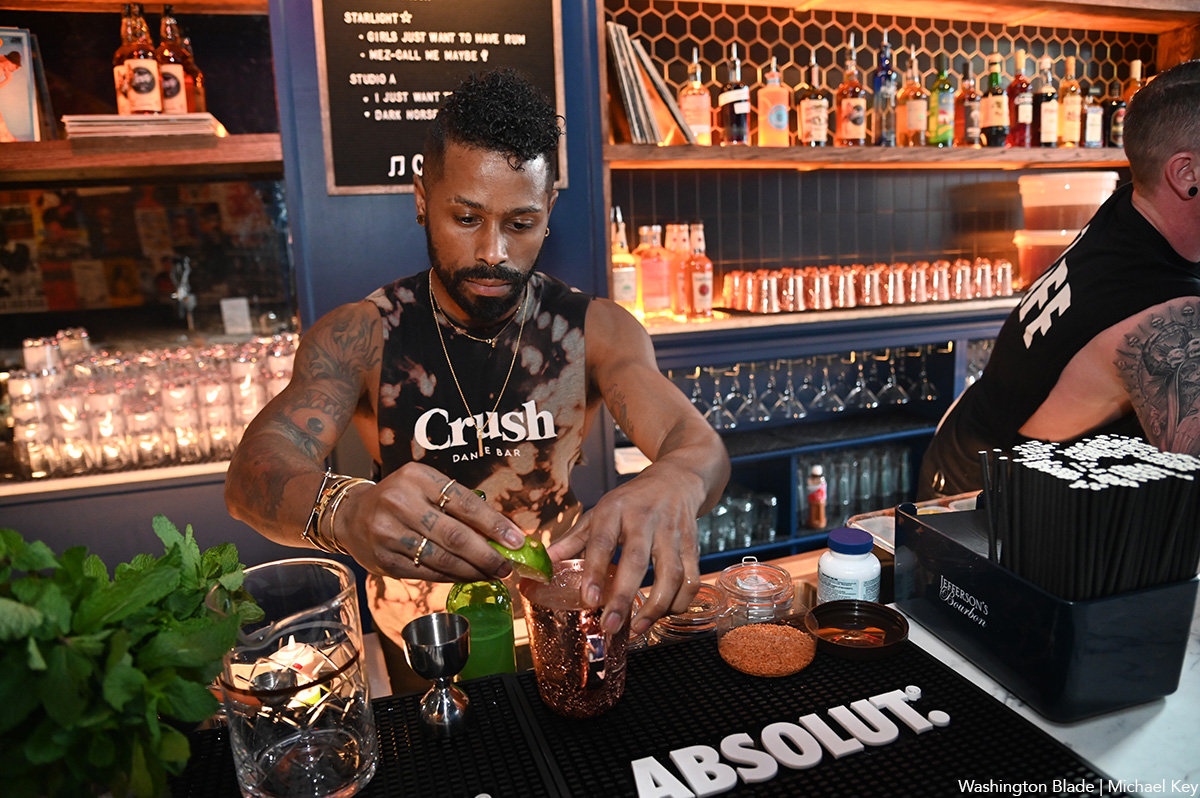
The new LGBTQ venue Crush held a party for friends, family and close supporters on Tuesday. For more information on future events at Crush, go to their Instagram page @crushbardc.
(Washington Blade photos by Michael Key)
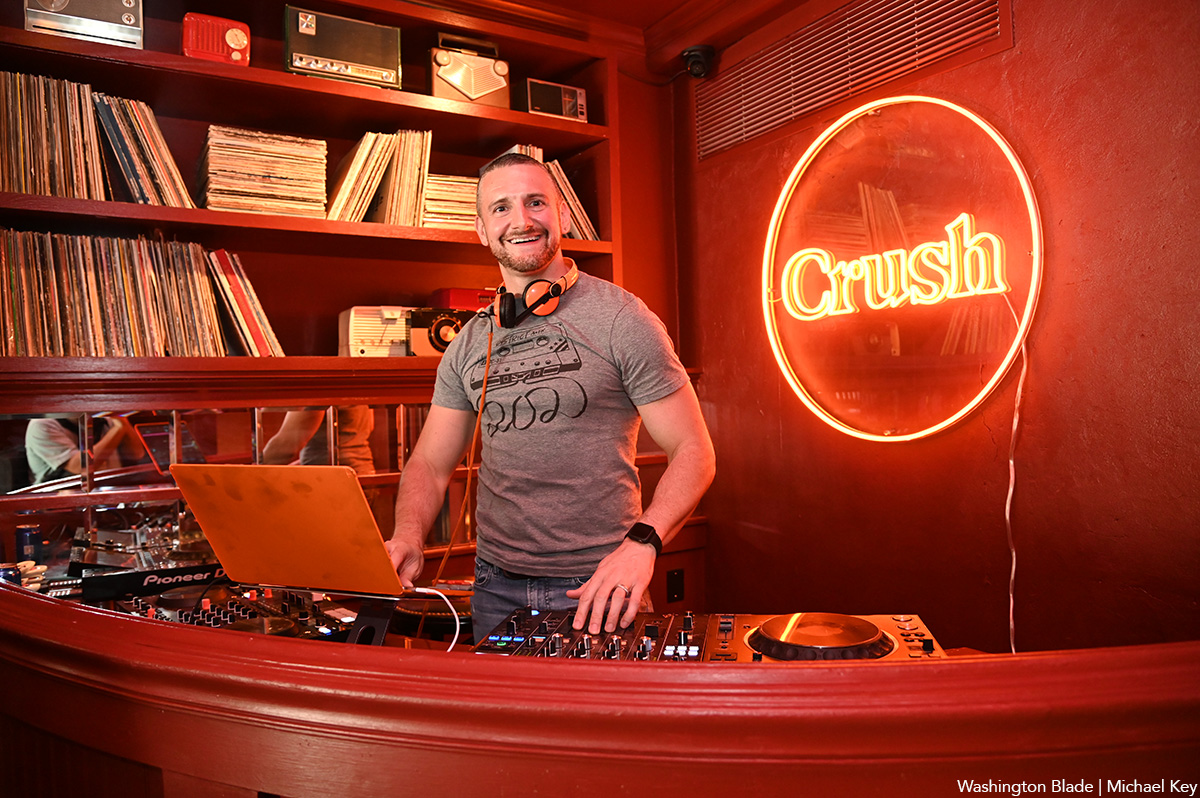
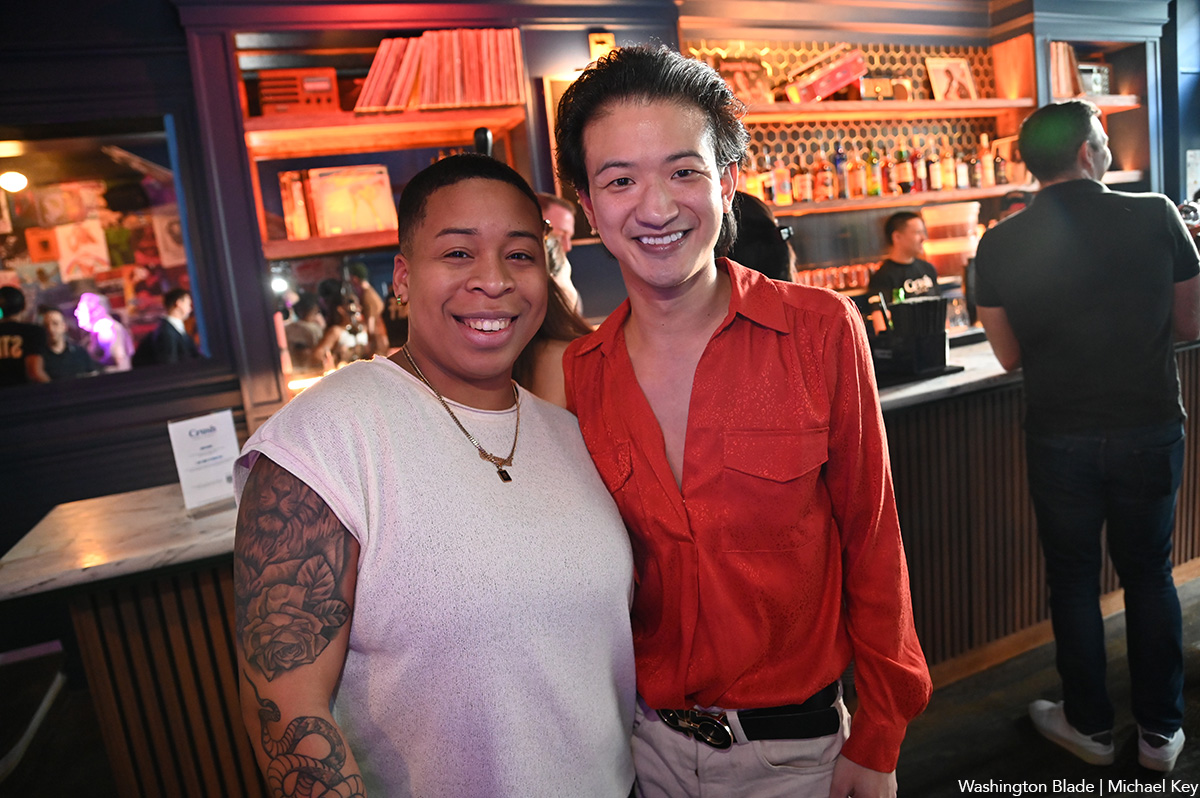
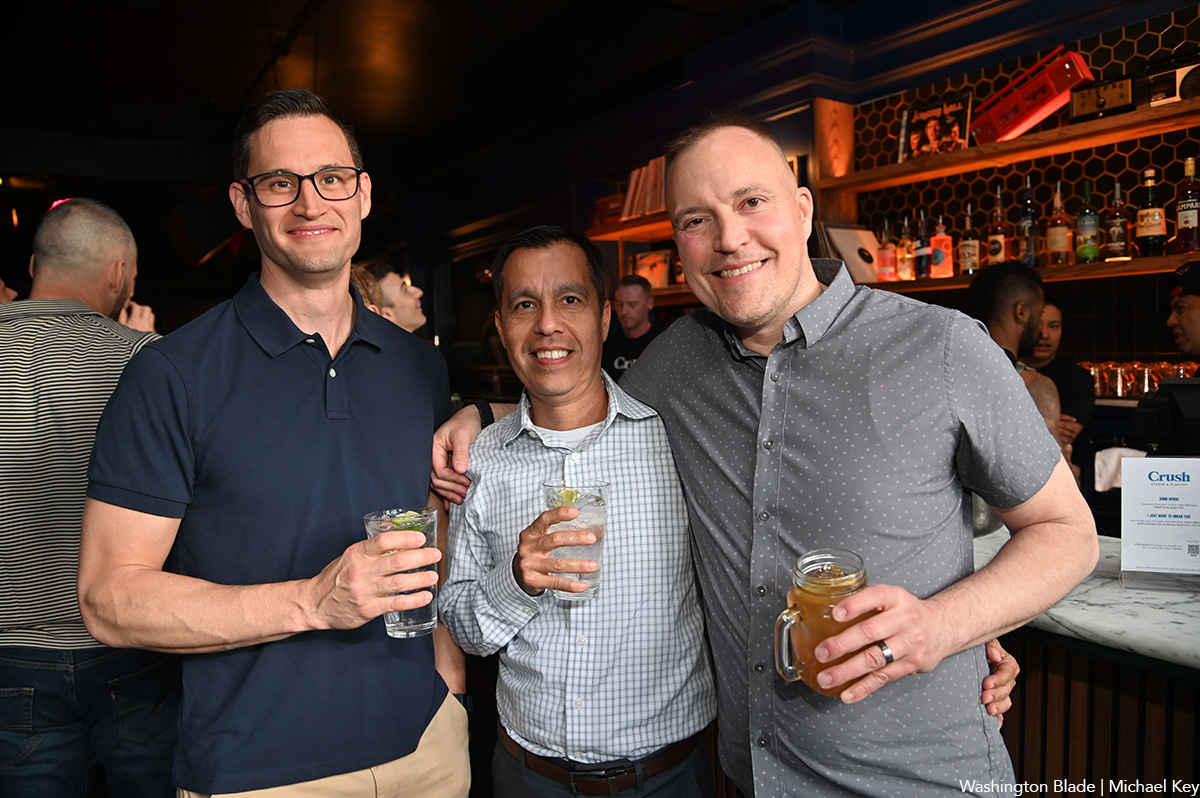
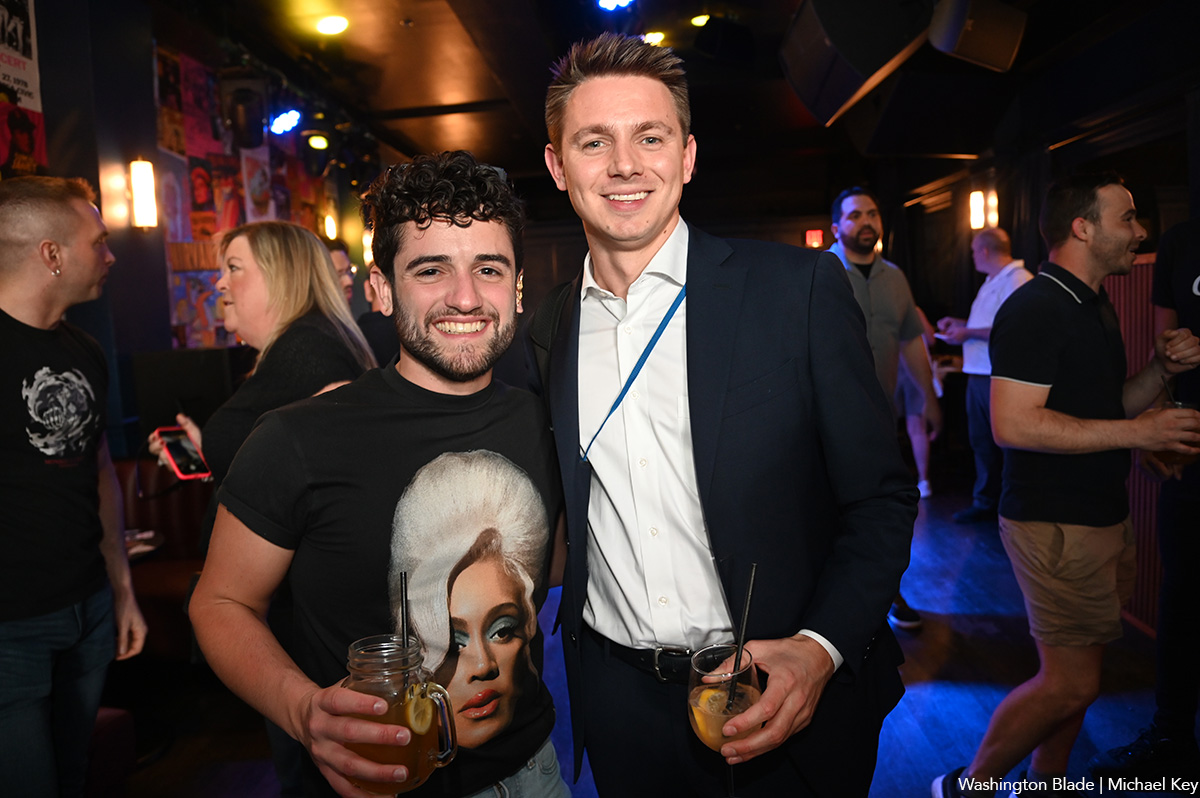
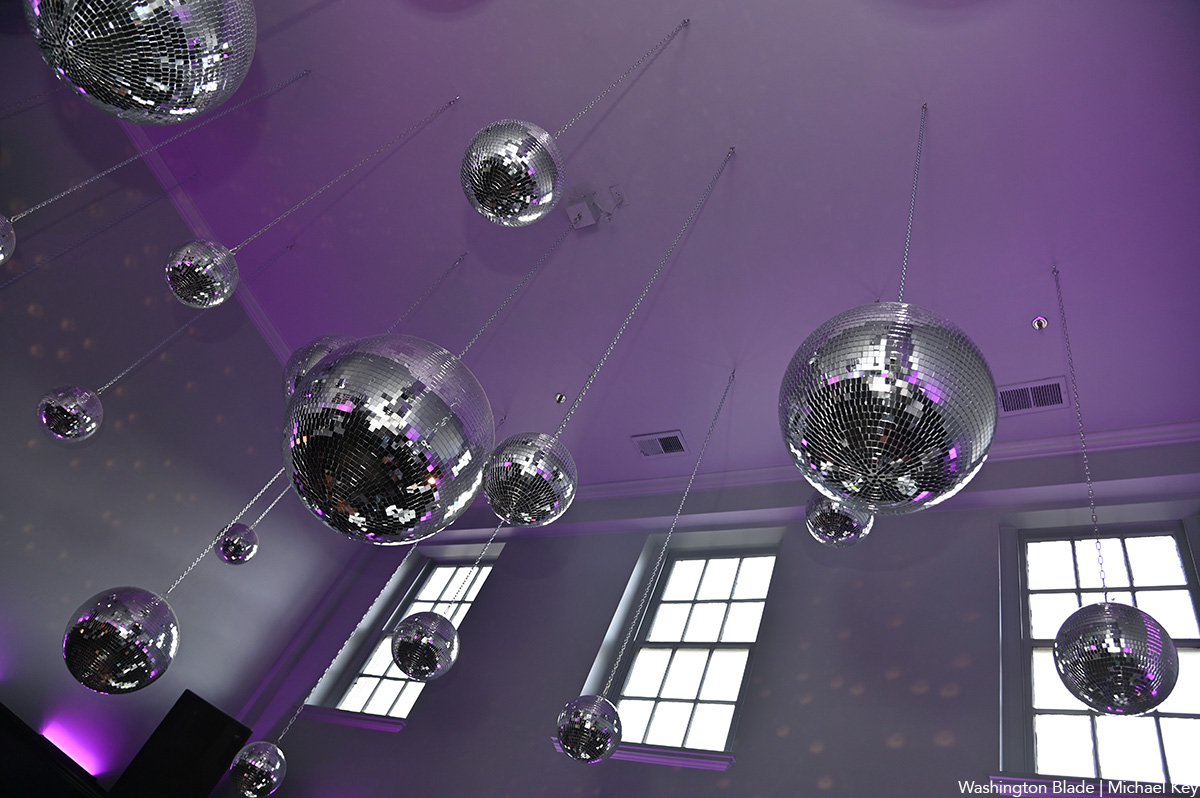
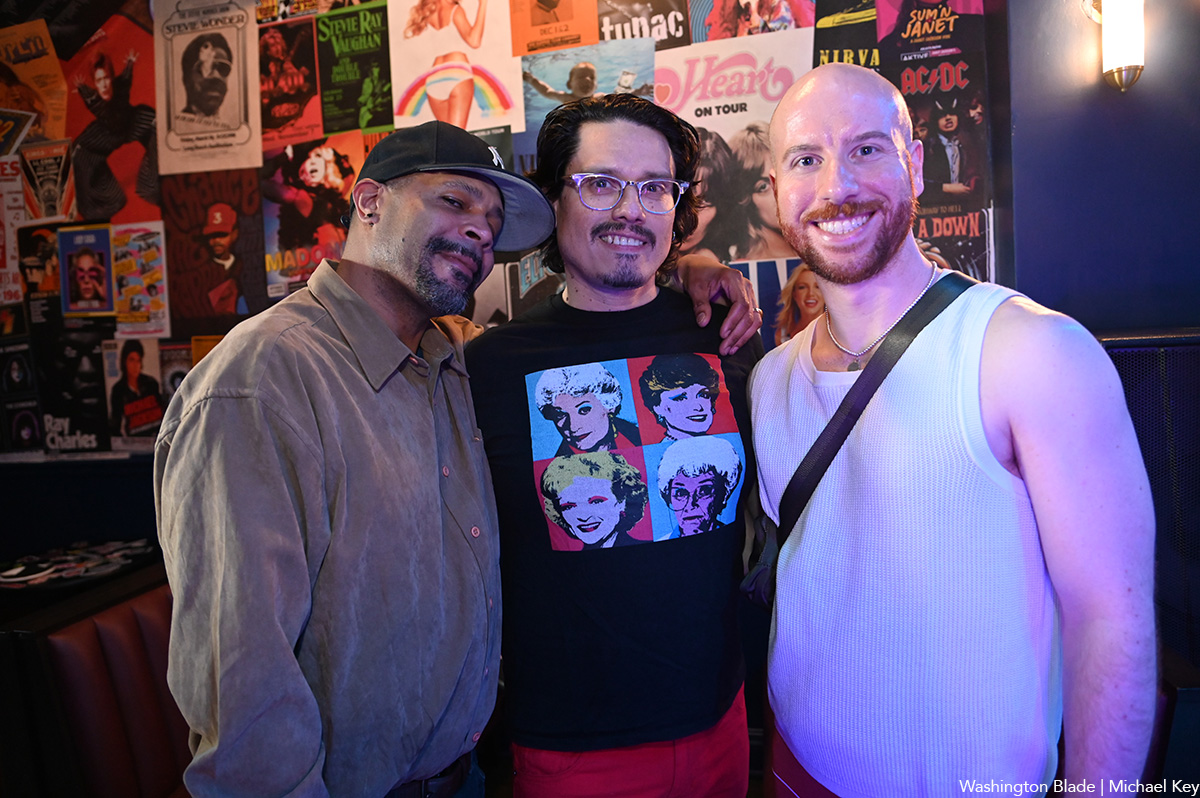
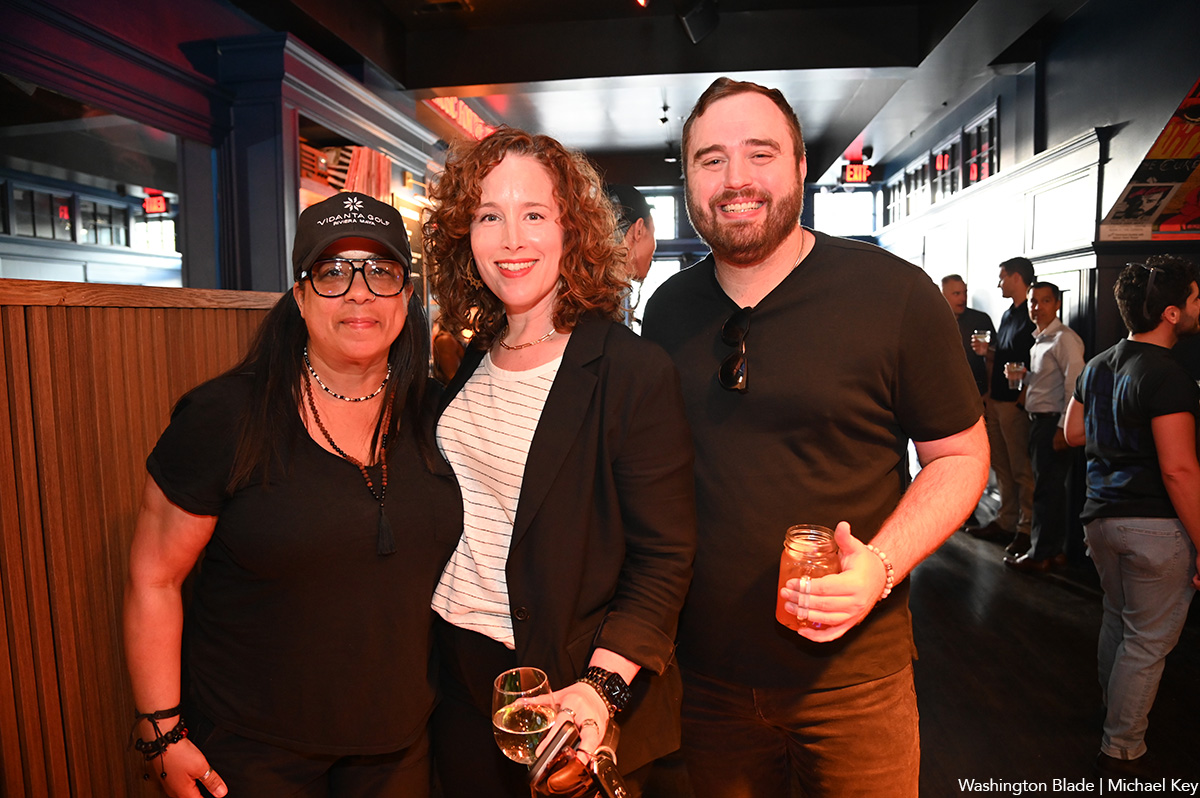
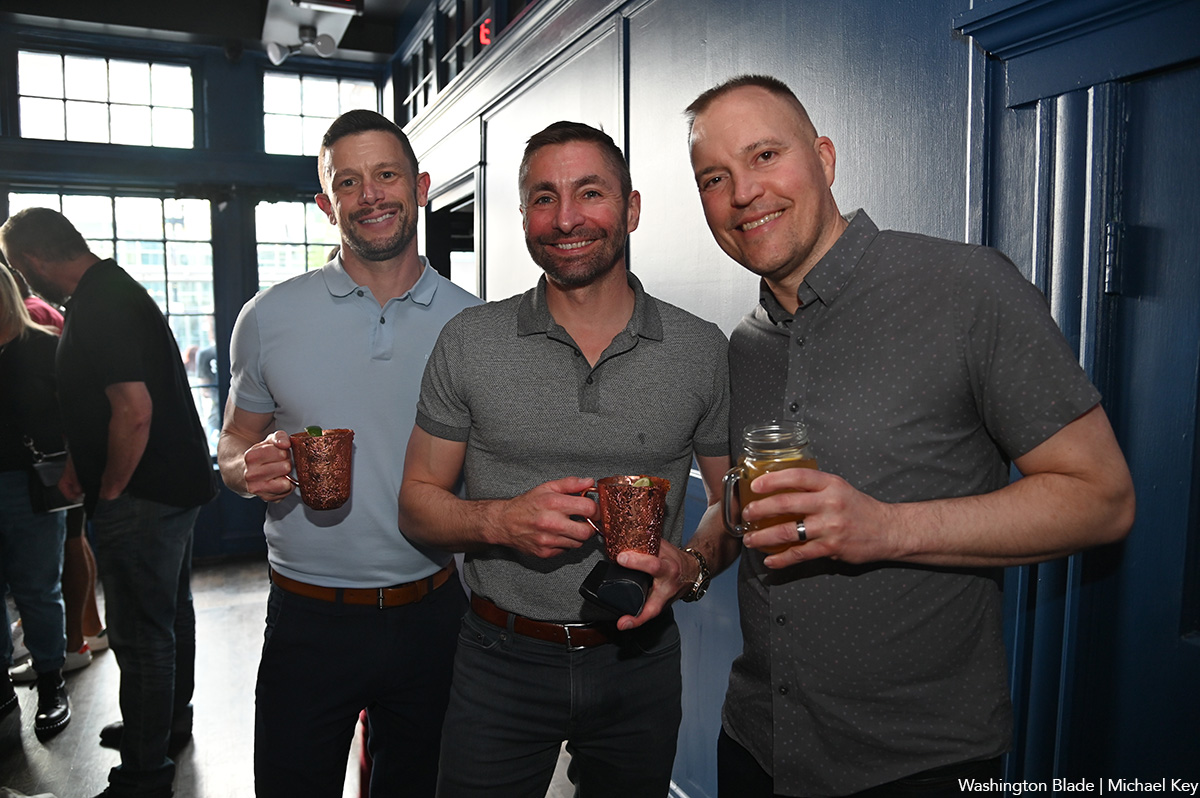

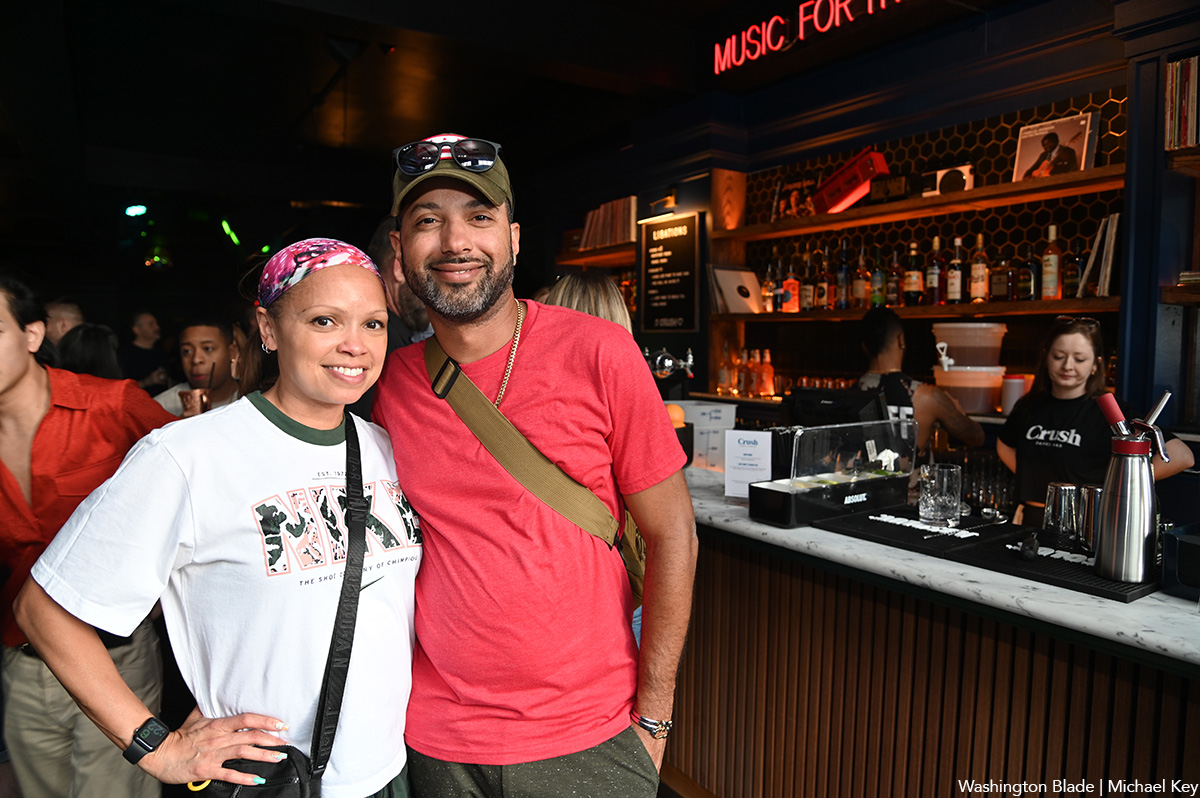
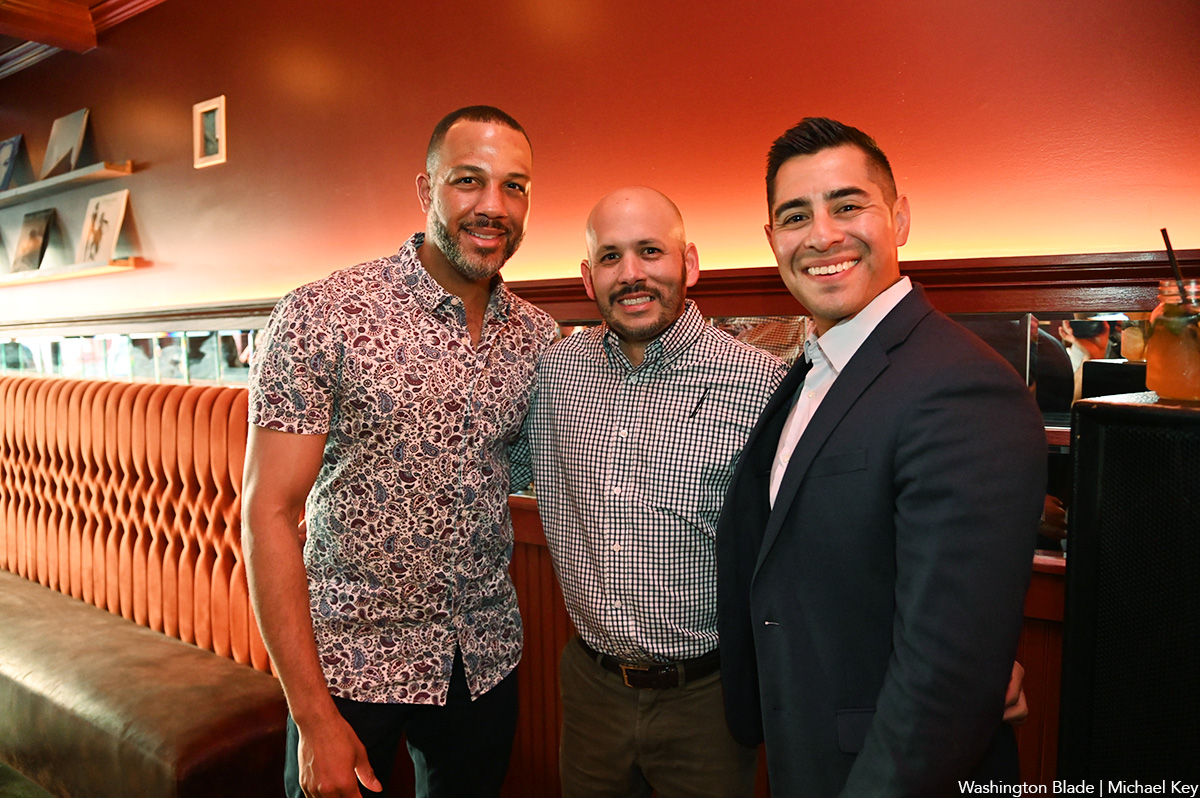
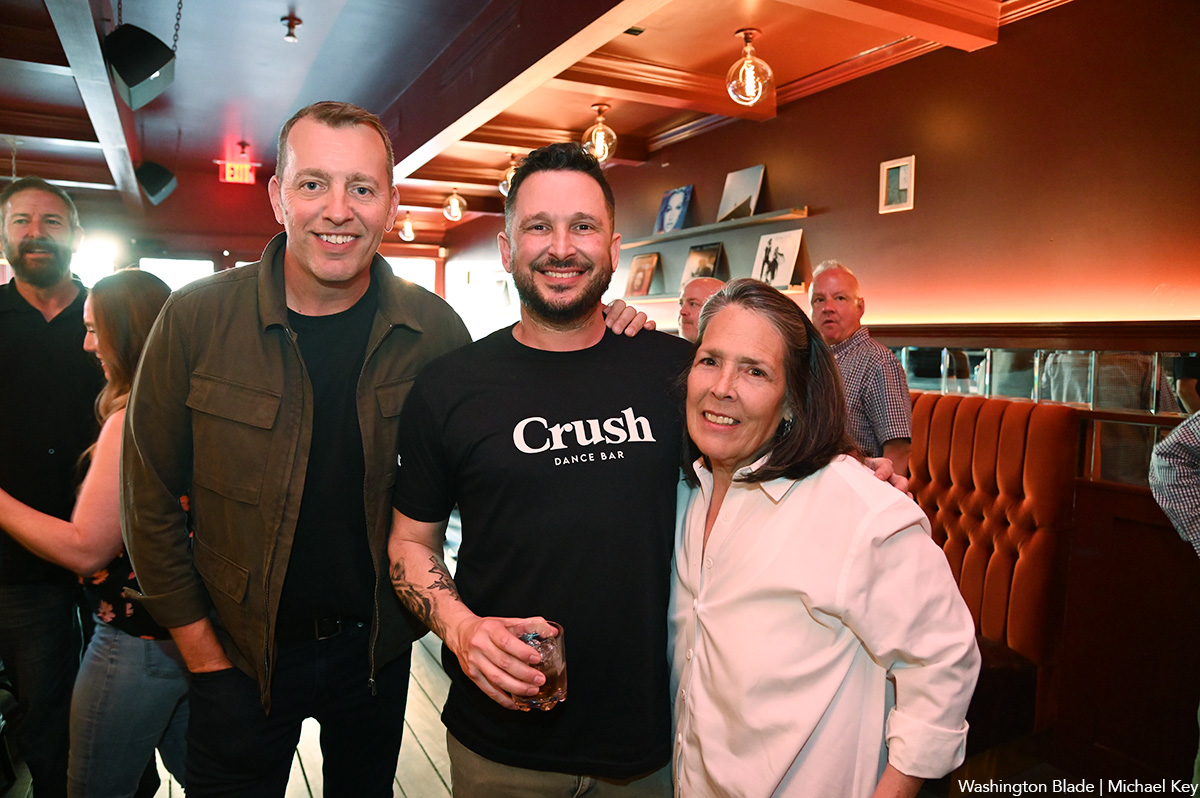
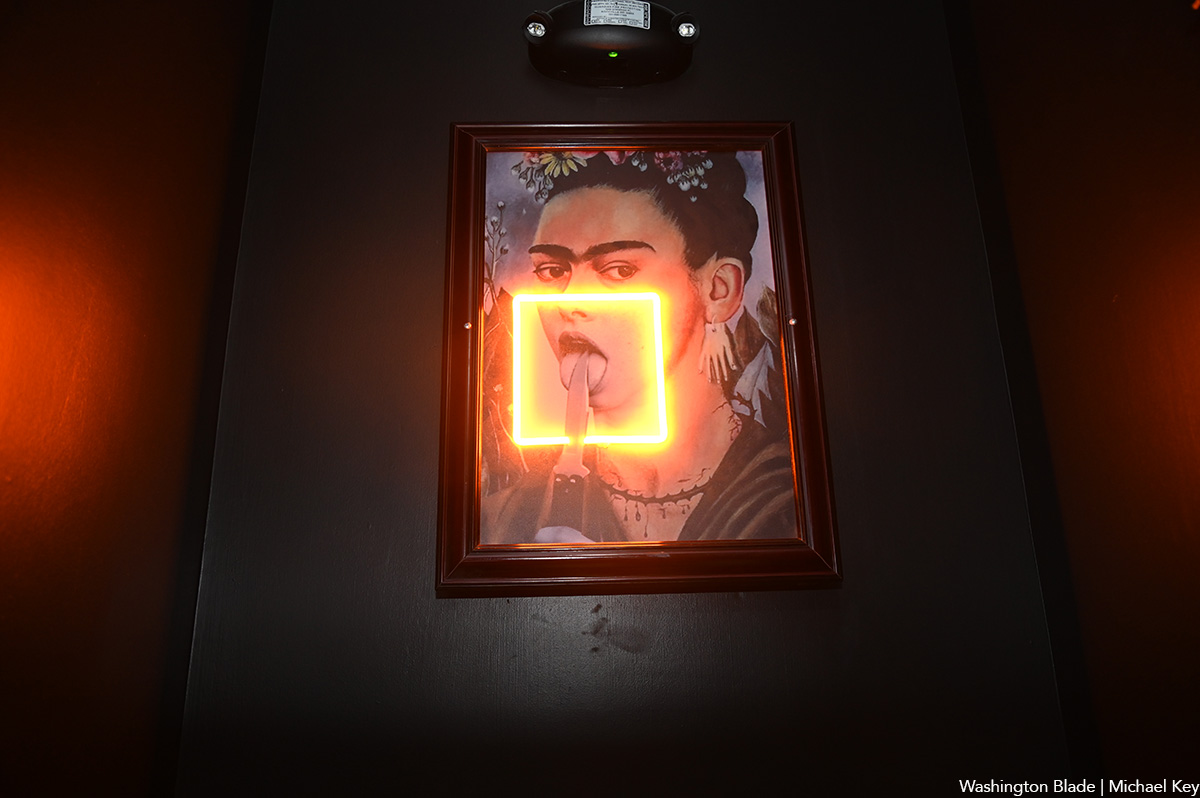
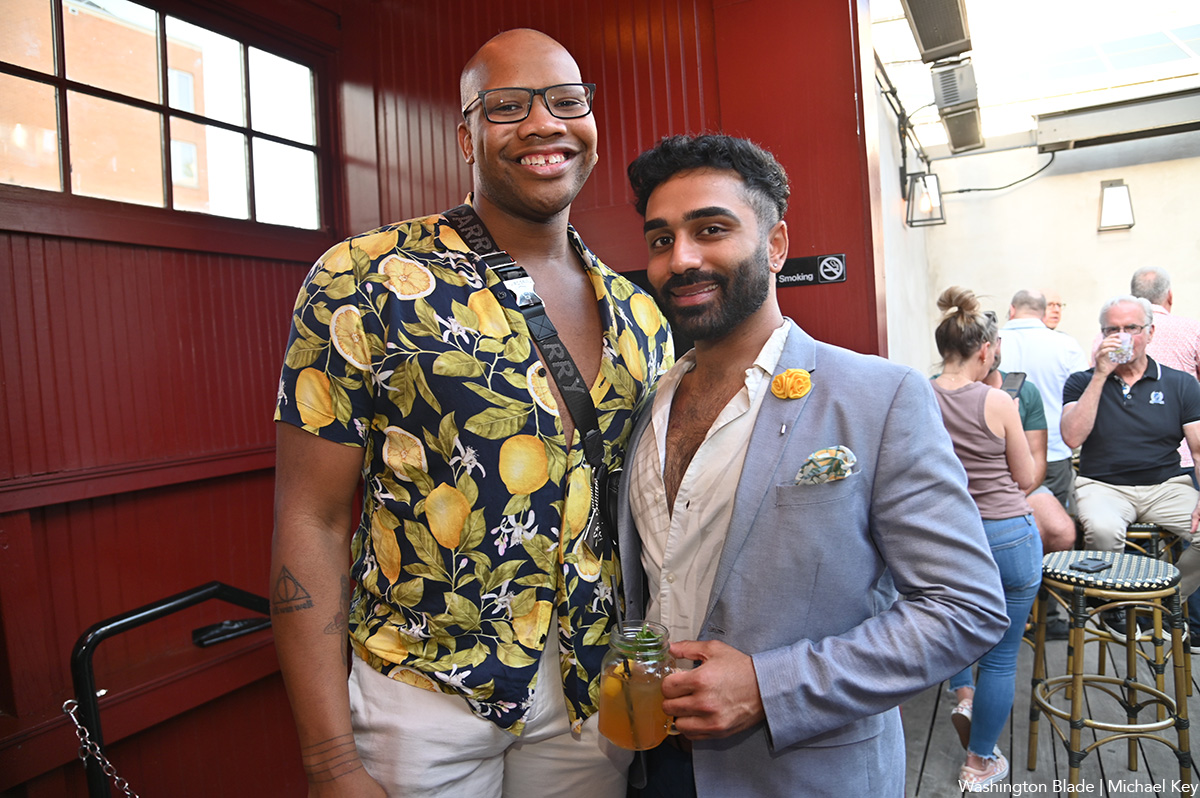
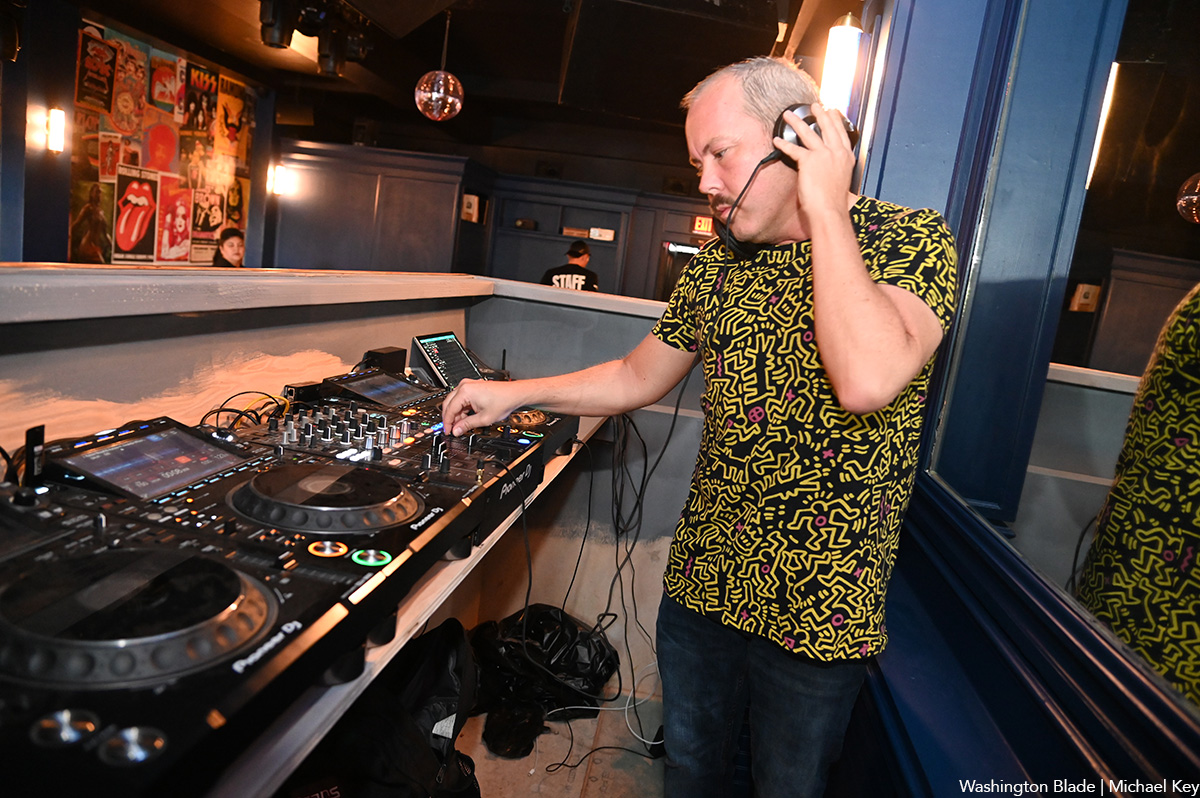
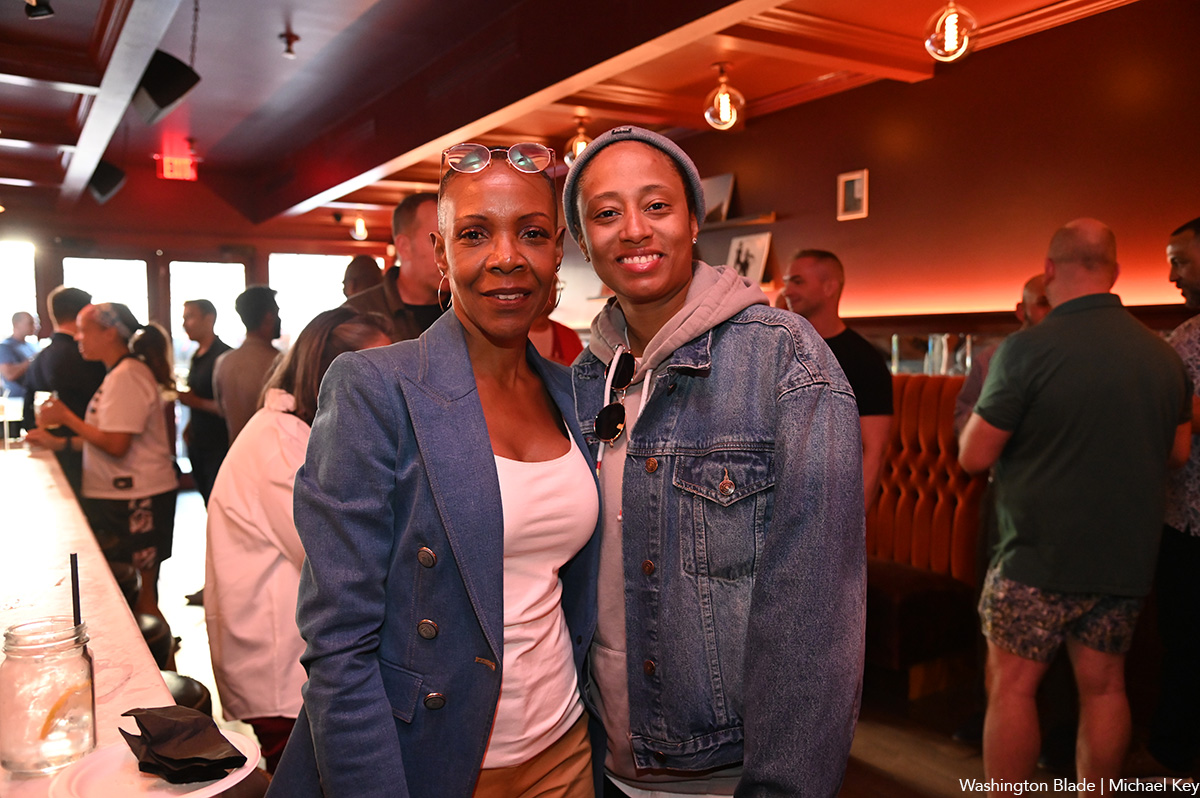
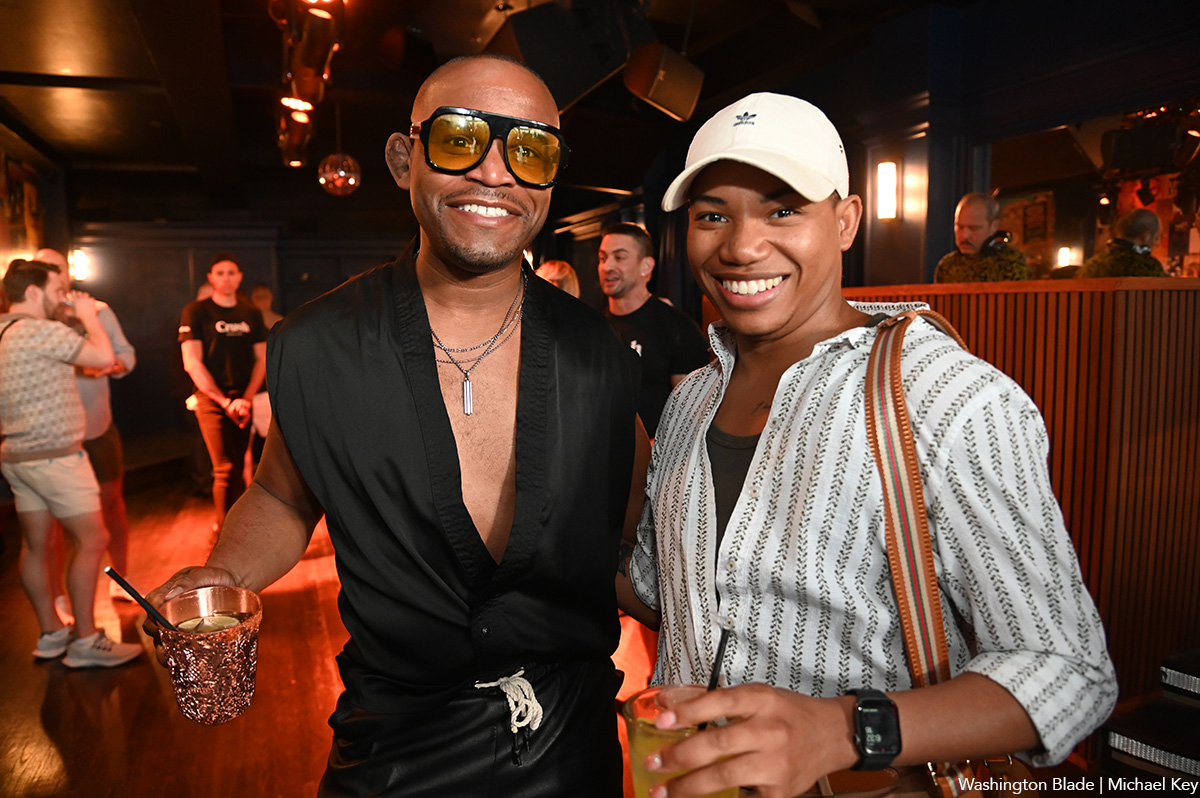
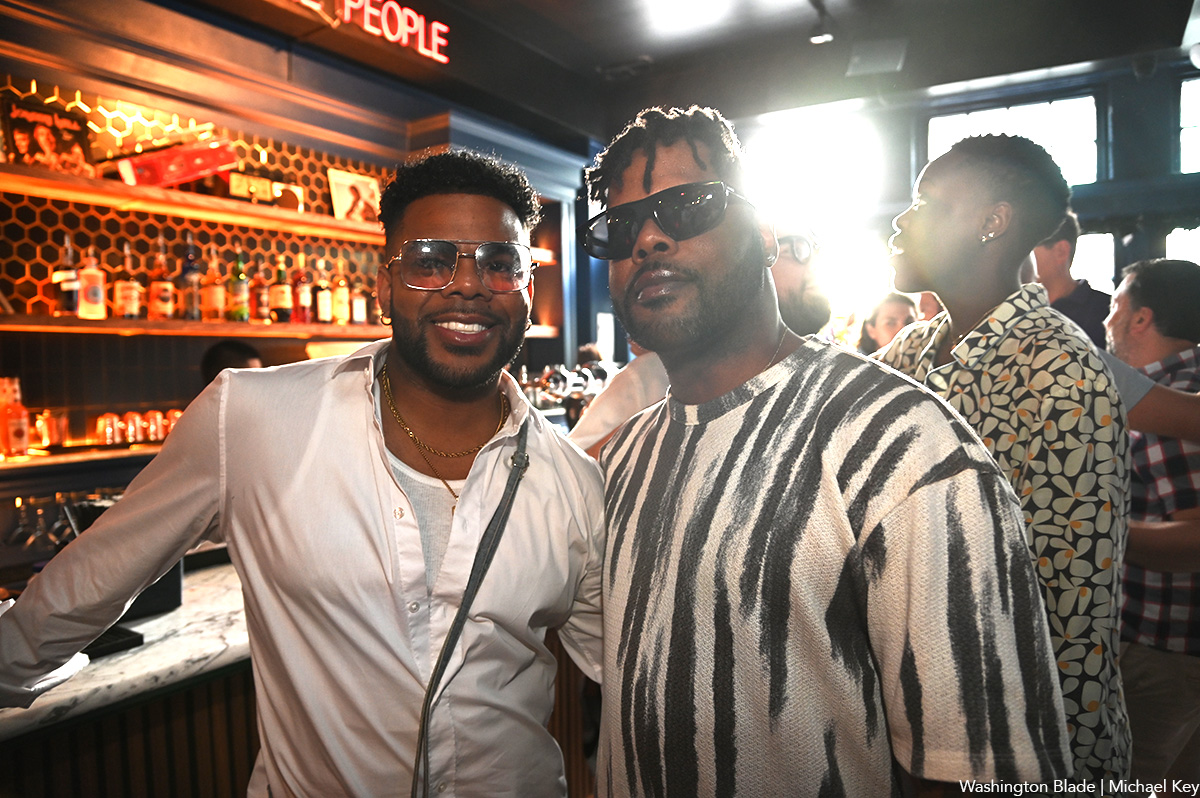
a&e features
What to expect at the 2024 National Cannabis Festival
Wu-Tang Clan to perform; policy discussions also planned

(Editor’s note: Tickets are still available for the National Cannabis Festival, with prices starting at $55 for one-day general admission on Friday through $190 for a two-day pass with early-entry access. The Washington Blade, one of the event’s sponsors, will host a LGBTQIA+ Lounge and moderate a panel discussion on Saturday with the Mayor’s Office of LGBTQ Affairs.)
With two full days of events and programs along with performances by Wu-Tang Clan, Redman, and Thundercat, the 2024 National Cannabis Festival will be bigger than ever this year.
Leading up to the festivities on Friday and Saturday at Washington, D.C.’s RFK Stadium are plenty of can’t-miss experiences planned for 420 Week, including the National Cannabis Policy Summit and an LGBTQ happy hour hosted by the District’s Black-owned queer bar, Thurst Lounge (both happening on Wednesday).
On Tuesday, the Blade caught up with NCF Founder and Executive Producer Caroline Phillips, principal at The High Street PR & Events, for a discussion about the event’s history and the pivotal political moment for cannabis legalization and drug policy reform both locally and nationally. Phillips also shared her thoughts about the role of LGBTQ activists in these movements and the through-line connecting issues of freedom and bodily autonomy.
After D.C. residents voted to approve Initiative 71 in the fall of 2014, she said, adults were permitted to share cannabis and grow the plant at home, while possession was decriminalized with the hope and expectation that fewer people would be incarcerated.
“When that happened, there was also an influx of really high-priced conferences that promised to connect people to big business opportunities so they could make millions in what they were calling the ‘green rush,'” Phillips said.
“At the time, I was working for Human Rights First,” a nonprofit that was, and is, engaged in “a lot of issues to do with world refugees and immigration in the United States” — so, “it was really interesting to me to see the overlap between drug policy reform and some of these other issues that I was working on,” Phillips said.
“And then it rubbed me a little bit the wrong way to hear about the ‘green rush’ before we’d heard about criminal justice reform around cannabis and before we’d heard about people being let out of jail for cannabis offenses.”
“As my interests grew, I realized that there was really a need for this conversation to happen in a larger way that allowed the larger community, the broader community, to learn about not just cannabis legalization, but to understand how it connects to our criminal justice system, to understand how it can really stimulate and benefit our economy, and to understand how it can become a wellness tool for so many people,” Phillips said.
“On top of all of that, as a minority in the cannabis space, it was important to me that this event and my work in the cannabis industry really amplified how we could create space for Black and Brown people to be stakeholders in this economy in a meaningful way.”

“Since I was already working in event production, I decided to use those skills and apply them to creating a cannabis event,” she said. “And in order to create an event that I thought could really give back to our community with ticket prices low enough for people to actually be able to attend, I thought a large-scale event would be good — and thus was born the cannabis festival.”
D.C. to see more regulated cannabis businesses ‘very soon’
Phillips said she believes decriminalization in D.C. has decreased the number of cannabis-related arrests in the city, but she noted arrests have, nevertheless, continued to disproportionately impact Black and Brown people.
“We’re at a really interesting crossroads for our city and for our cannabis community,” she said. In the eight years since Initiative 71 was passed, “We’ve had our licensed regulated cannabis dispensaries and cultivators who’ve been existing in a very red tape-heavy environment, a very tax heavy environment, and then we have the unregulated cannabis cultivators and cannabis dispensaries in the city” who operate via a “loophole” in the law “that allows the sharing of cannabis between adults who are over the age of 21.”
Many of the purveyors in the latter group, Phillips said, “are looking at trying to get into the legal space; so they’re trying to become regulated businesses in Washington, D.C.”
She noted the city will be “releasing 30 or so licenses in the next couple of weeks, and those stores should be coming online very soon” which will mean “you’ll be seeing a lot more of the regulated stores popping up in neighborhoods and hopefully a lot more opportunity for folks that are interested in leaving the unregulated space to be able to join the regulated marketplace.”
National push for de-scheduling cannabis
Signaling the political momentum for reforming cannabis and criminal justice laws, Wednesday’s Policy Summit will feature U.S. Sens. Raphael Warnock (D-Ga.), Jeff Merkley (D-Ore.), Elizabeth Warren (D-Mass.), and Chuck Schumer (D-N.Y.), the Senate majority leader.
Also representing Capitol Hill at the Summit will be U.S. Congresswoman Eleanor Holmes Norton (D-D.C.) and U.S. Reps. Earl Blumenauer (D-Ore.) and Barbara Lee (D-Calif.) — who will be receiving the Supernova Women Cannabis Champion Lifetime Achievement Award — along with an aide to U.S. Rep. David Joyce (R-Ohio).
Nationally, Phillips said much of the conversation around cannabis concerns de-scheduling. Even though 40 states and D.C. have legalized the drug for recreational and/or medical use, marijuana has been classified as a Schedule I substance since the Controlled Substances Act was passed in 1971, which means it carries the heftiest restrictions on, and penalties for, its possession, sale, distribution, and cultivation.
The U.S. Department of Health and Human Services formally requested the drug be reclassified as a Schedule III substance in August, which inaugurated an ongoing review, and in January a group of 12 Senate Democrats sent a letter to the Biden-Harris administration’s Drug Enforcement Administration urging the agency to de-schedule cannabis altogether.
Along with the Summit, Phillips noted that “a large contingent of advocates will be coming to Washington, D.C. this week to host a vigil at the White House and to be at the festival educating people” about these issues. She said NCF is working with the 420 Unity Coalition to push Congress and the Biden-Harris administration to “move straight to de-scheduling cannabis.”
“This would allow folks who have been locked up for cannabis offenses the chance to be released,” she said. “It would also allow medical patients greater access. It would also allow business owners the chance to exist without the specter of the federal government coming in and telling them what they’re doing is wrong and that they’re criminals.”
Phillips added, however, that de-scheduling cannabis will not “suddenly erase” the “generations and generations of systemic racism” in America’s financial institutions, business marketplace, and criminal justice system, nor the consequences that has wrought on Black and Brown communities.
An example of the work that remains, she said, is making sure “that all people are treated fairly by financial institutions so that they can get the funding for their businesses” to, hopefully, create not just another industry, but “really a better industry” that from the outset is focused on “equity” and “access.”
Policy wonks should be sure to visit the festival, too. “We have a really terrific lineup in our policy pavilion,” Phillips said. “A lot of our heavy hitters from our advocacy committee will be presenting programming.”
“On Saturday there is a really strong federal marijuana reform panel that is being led by Maritza Perez Medina from the Drug Policy Alliance,” she said. “So that’s going to be a terrific discussion” that will also feature “representation from the Veterans Cannabis Coalition.”
“We also have a really interesting talk being led by the Law Enforcement Action Partnership about conservatives, cops, and cannabis,” Phillips added.
Cannabis and the LGBTQ community
“I think what’s so interesting about LGBTQIA+ culture and the cannabis community are the parallels that we’ve seen in the movements towards legalization,” Phillips said.
The fight for LGBTQ rights over the years has often involved centering personal stories and personal experiences, she said. “And that really, I think, began to resonate, the more that we talked about it openly in society; the more it was something that we started to see on television; the more it became a topic in youth development and making sure that we’re raising healthy children.”
Likewise, Phillips said, “we’ve seen cannabis become more of a conversation in mainstream culture. We’ve heard the stories of people who’ve had veterans in their families that have used cannabis instead of pharmaceuticals, the friends or family members who’ve had cancer that have turned to CBD or THC so they could sleep, so they could eat so they could get some level of relief.”
Stories about cannabis have also included accounts of folks who were “arrested when they were young” or “the family member who’s still locked up,” she said, just as stories about LGBTQ people have often involved unjust and unnecessary suffering.
Not only are there similarities in the socio-political struggles, Phillips said, but LGBTQ people have played a central role pushing for cannabis legalization and, in fact, in ushering in the movement by “advocating for HIV patients in California to be able to access cannabis’s medicine.”
As a result of the queer community’s involvement, she said, “the foundation of cannabis legalization is truly patient access and criminal justice reform.”
“LGBTQIA+ advocates and cannabis advocates have managed to rein in support of the majority of Americans for the issues that they find important,” Phillips said, even if, unfortunately, other movements for bodily autonomy like those concerning issues of reproductive justice “don’t see that same support.”
-

 Africa4 days ago
Africa4 days agoCongolese lawmaker introduces anti-homosexuality bill
-

 District of Columbia1 day ago
District of Columbia1 day agoReenactment of first gay rights picket at White House draws interest of tourists
-

 World4 days ago
World4 days agoOut in the World: LGBTQ news from Europe and Asia
-

 Arizona1 day ago
Arizona1 day agoAriz. governor vetoes anti-transgender, Ten Commandments bill

